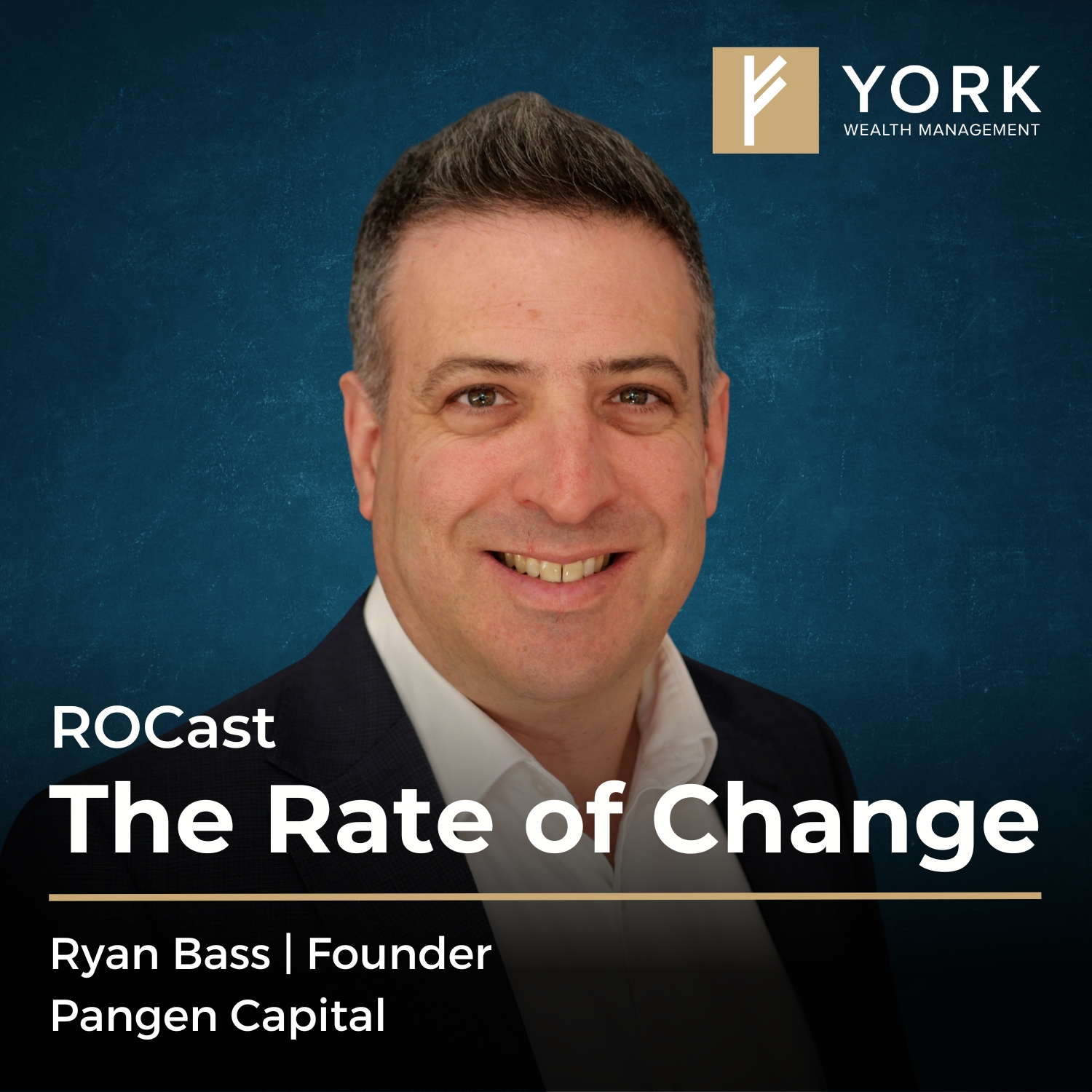Opening the door to Australia’s institutional-grade property market | Ryan Bass
.jpg)
Ryan Bass, Founder and Managing Director of PanGen Capital joins Murdoch Gatti from York Wealth Management on The Rate of Change. Ryan spent 16 years at UniSuper, where he was involved in more than $8 billion in property transactions across direct real estate, unlisted property funds, and listed A-REITs. After completing his articles at a commercial law firm, Ryan started his career at MCS Property—one of Australia’s original and largest syndicators—and was one of the founding six behind iSelect, before choosing to focus on funds management and institutional real assets.
At The Rate of Change, we love conversations with entrepreneurs who have operated at the highest level—and are now stepping out to solve a real problem they’ve seen up close. Ryan’s new venture, PanGen Capital, is doing exactly that. After decades inside major super funds, he observed a key issue: some of the best-performing, most stable property assets in the country—like prime grade core shopping centres, CBD office towers, and logistics hubs—are largely inaccessible to wholesale investors. These institutional-grade opportunities are typically locked behind $10 million minimums, strict mandates, and relationship-based entry.
Through PanGen’s new fund-of-funds, the PanGen Australian Real Estate Fund (PAREF), Ryan is now making those opportunities available to wholesale investors. With target returns of 8–10% p.a., exposure to diversified unlisted property funds managed by top tier managers such as Dexus, GPT, Charter Hall, Lendlease and Mirvac, and a structure designed for monthly unit pricing and quarterly income, PAREF aims to deliver quality, stability, and long-term performance—with the flexibility to expand across other high-calibre managers as opportunities arise. This is about bringing institutional-grade real estate to investors who have historically been shut out.
In this conversation, Ryan breaks down how the strategy works, why now is such an attractive time in the real estate cycle, and how his fund is positioned to benefit from the repricing in property markets, surging population growth, and tightening supply of premium commercial assets. We also touch on fund mechanics, risk management, the importance of manager independence, and what Ryan learned deploying capital at scale inside one of Australia’s largest super funds.
So, before we get into the conversation, please remember this ROCast is made for entertainment purposes only.
I encourage you to listen to the disclaimer at the end of this ROCast and to keep your feedback coming. You can reach me via direct message on livewire.
With that being said, I hope you enjoy this conversation as much as I did. So sit back, relax, and enjoy.

Follow The Rate Of Change to never miss a ROCast!
5 topics
4 stocks mentioned
.png)
.png)